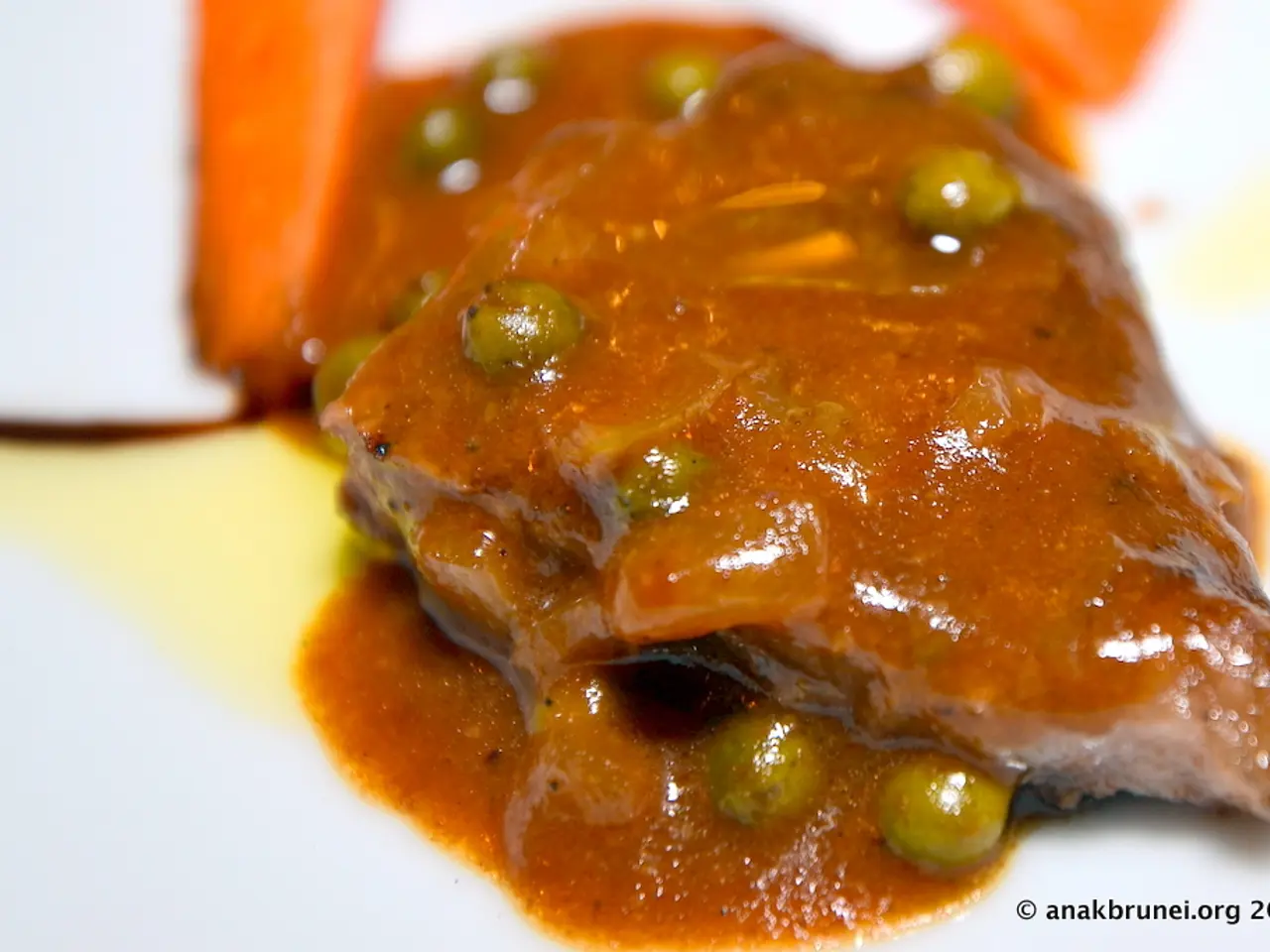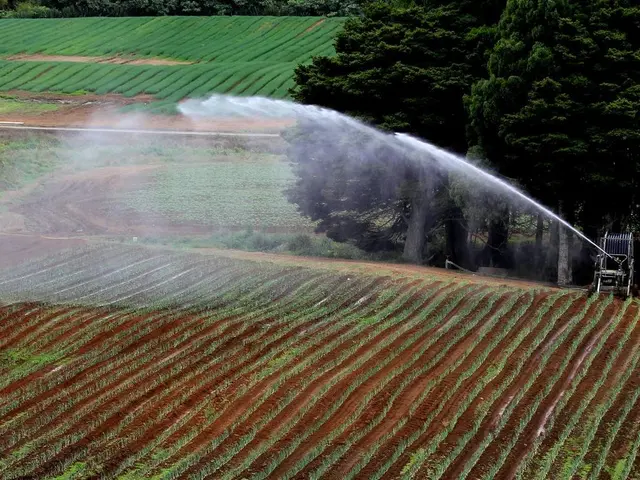Monitoring the path of your food from farm to consumption through Blockchain technology
In the world of food production and consumption, transparency and sustainability are becoming increasingly important factors for consumers. This is where blockchain technology comes into play, offering a robust solution for enhancing both food safety and supply chain transparency.
One platform leading this charge is OpenSC, a WWF-backed initiative, which focuses on promoting ethical and sustainable sourcing for products like seafood and beef. By allowing consumers to verify the sustainability credentials of their food, OpenSC is helping to create a more responsible and eco-friendly food industry.
Major companies like Walmart, Carrefour, and WWF-backed OpenSC are already leveraging blockchain to improve food safety, ethical sourcing, and consumer confidence. Carrefour, for instance, uses blockchain to trace chicken, cheese, fresh fruits, and vegetables, allowing shoppers to scan QR codes for detailed information about the food’s origin and handling.
Blockchain significantly improves food safety by providing a secure, decentralized, and tamper-proof system for tracking every transaction across the food supply chain. This technology offers several key benefits:
Improving Food Safety
- Tamper-Proof Record Keeping: All transactions, from planting to consumption, are recorded on a blockchain ledger, ensuring that no data can be altered once it is entered. This prevents tampering and fraudulent activities, such as falsifying safety checks or certifications.
- Rapid Outbreak Identification: Blockchain allows for quick identification of contaminated products by tracing back through the supply chain in real-time. This reduces the risk of widespread illnesses and minimizes financial losses associated with product recalls.
- Compliance with Regulations: Blockchain helps companies comply with food safety regulations by providing a transparent and verifiable mechanism for monitoring compliance. This ensures that products meet necessary safety standards.
Enhancing Supply Chain Transparency
- Real-Time Tracking: Blockchain enables real-time tracking of food products as they move through the supply chain. This includes details such as origin, transport conditions, and handling practices.
- Consumer Confidence: Consumers can access detailed product information by scanning QR codes or using mobile apps. This transparency boosts consumer trust in the authenticity and quality of food products.
- Sustainability Monitoring: Blockchain allows for the monitoring of environmental impacts and sustainability practices throughout the supply chain, such as carbon footprint tracking and farming certifications.
By increasing consumer confidence, blockchain technology puts power in the hands of consumers, allowing them to demand transparency and make choices that align with their values. Moreover, blockchain encourages farmers, producers, and retailers to step up their game, knowing their practices are visible and verifiable.
In case of a problem, blockchain can pinpoint exactly which farm a food item came from and which stores received it, aiding faster and more precise recalls. Blockchain copies its information across many computers worldwide, making the data protected from being changed or deleted.
Blockchain technology is already helping to improve food safety by enabling faster recalls of contaminated or spoiled products. It also supports sustainability and ethical sourcing by verifying claims about organic farming, fair labor practices, or sustainable fishing, encouraging producers to adopt better, more responsible methods.
In conclusion, blockchain technology is a powerful tool that builds trust, protects health, and pushes the food industry toward a more sustainable future. Walmart, in partnership with IBM, has developed Food Trust, a blockchain-based platform for tracking produce like mangoes, lettuce, and spinach. Blockchain is a digital notebook that records every step of a food’s journey from farm to table, creating a permanent and transparent record. As more companies adopt this technology, consumers can look forward to a food industry that is safer, more transparent, and more sustainable.
Read also:
- Ford Discontinues Popular Top-Seller in Staggering Shift, Labeled as a "Model T Event"
- Dubai-bound: Omega Seiki Mobility, an electric vehicle company from India, prepares for assembly establishment
- BYD introduces their in-house developed tablet, set to be unveiled in the upcoming Fang Cheng Bao Tai 7 event.
- Ford Executive Announces Electrical Vehicle Strategy as a Single Major Gamble








